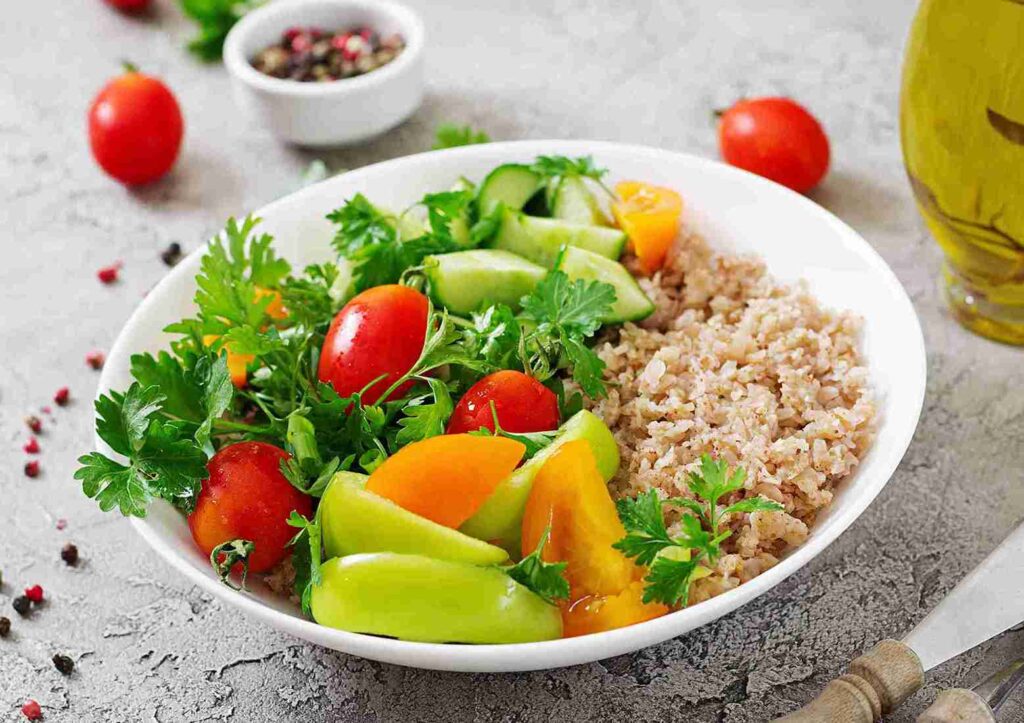Table of Contents
In recent years, the popularity of veganism has surged, driven by concerns for health, the environment, and animal welfare. This seismic shift towards plant-based diets is not merely a trend but conscious choice reflecting a deeper understanding of nutrition and its impact on our well-being. However, amidst this growing interest, numerous misconceptions about vegan protein continue to circulate, often hindering individuals from exploring its full potential.

The Power of Vegan Protein
Vegan protein is not just a substitute for its animal-derived counterpart; it is a powerhouse of essential nutrients. Beyond being a source of protein, plant-based options offer a spectrum of vitamins, minerals, and antioxidants vital for overall health. Additionally, the bioavailability of nutrients in vegan protein is commendable, ensuring efficient absorption and utilization by the body. This makes it an optimal choice for individuals with sensitive digestive systems.
Breaking the Stereotypes

One prevailing myth is the belief that vegan diets inherently lead to insufficient protein intake. To dismantle this stereotype, it is crucial to compare vegan and animal-based protein sources comprehensively. While animal products provide complete proteins, many plant-based sources can be combined strategically to achieve the same effect. Emphasizing the importance of variety in a vegan diet is paramount – not just for protein but for a well-rounded nutritional profile.
Vegan Protein Sources
The diversity of vegan protein sources is vast and exciting. Legumes and beans, known for their protein and fiber content, form the foundation of many plant-based diets. Nuts and seeds, packed with healthy fats and protein, add a delightful crunch to meals. For those looking for convenient options, plant-based protein supplements offer a quick and efficient way to meet daily protein requirements.
Maximizing Muscle Building
Contrary to the notion that plant-based diets lack the capacity to support muscle building, vegan protein is gaining recognition among athletes. Amino acids, the building blocks of proteins, are abundant in plant sources. By exploring the success stories of vegan athletes, we can debunk the misconception that animal products are indispensable for athletic prowess.
Recipes for Protein-Packed Vegan Meals

Dispelling the myth that vegan meals lack flavor, we present a collection of delicious and nutritious recipes that not only satisfy the taste buds but also deliver an optimal balance of macronutrients. From hearty lentil stews to protein-rich quinoa salads, these recipes showcase the culinary diversity of a plant-based diet.
Vegan Protein and Weight Management
For those embarking on a weight loss journey, the satiating properties of vegan proteins can be a game-changer. The reduced calorie intake associated with a plant-based diet, coupled with the
benefits of increased fiber, supports effective weight management. Incorporating vegan protein into a well-balanced diet plan is key to achieving sustainable results.
Health Benefits Beyond Protein

While protein is a central focus, the health benefits of vegan protein extend beyond this macronutrient. The antioxidant-rich nature of plant-based proteins contributes to improved cellular health. Additionally, the high fiber content aids in digestive health and has been linked to a reduced risk of chronic diseases such as heart disease and diabetes.
Sustainability of Vegan Protein
Choosing vegan protein is not only a personal health decision but also an environmentally conscious one. Exploring the environmental impact of plant-based protein sources, we delve into how adopting a vegan diet can significantly reduce one’s carbon footprint. Ethical considerations, including animal welfare, further highlight the holistic sustainability of embracing plant-based nutrition.
Addressing Common Concerns
Addressing common concerns associated with a vegan diet is essential for providing comprehensive guidance. From meeting nutritional needs to addressing potential deficiencies like iron and vitamin B12, we offer practical insights into planning a well-rounded vegan diet that caters to all aspects of health.
Real-Life Experiences

Real-life experiences from individuals thriving on vegan protein provide valuable insights into the practical aspects of adopting a plant-based lifestyle. By acknowledging and addressing the challenges faced, we empower readers to navigate potential obstacles and embrace the transformative journey towards a healthier, more sustainable lifestyle.
Vegan Protein and Aging
As we age, the importance of protein becomes even more pronounced. Exploring the role of vegan protein in maintaining muscle mass and bone density, we shed light on how plant-based nutrition supports overall health in the elderly. Emphasizing the relevance of a protein-rich diet for aging adults underscores the suitability of vegan protein in diverse life stages.
Vegan Protein Myths Debunked
Dispelling myths requires a thorough examination of common misconceptions. In this section, we provide scientific evidence supporting the efficacy of vegan protein and debunking unfounded claims. Distinguishing facts from fiction is crucial for those seeking reliable information on the benefits of plant-based nutrition, particularly regarding protein.
Recommendations from Nutrition Experts
Insights from registered dietitians and nutrition experts offer a professional perspective on vegan nutrition. Guidelines for optimal vegan protein consumption, personalized advice, and recommendations tailored to individual needs, provide readers with a roadmap for making informed dietary choices

In conclusion, breaking free from the myths surrounding vegan protein unveils a world of nutritional possibilities. Beyond mere substitution, plant-based protein emerges as a versatile and powerful ally for holistic well-being, offering numerous benefits beyond protein intake. As we encourage a balanced and informed approach to nutrition, the journey towards a stronger, healthier self begins with understanding and embracing the untapped potential of vegan protein and its benefits.
FAQs
- Is it challenging to get enough protein on a vegan diet?
Contrary to common belief, obtaining sufficient protein on a vegan diet is feasible by incorporating a variety of plant-based sources and emphasizing diversity. Emphasizing the diversity of these sources enhances nutritional intake and overall health. - Do vegan athletes perform as well as those on animal-based diets?
Yes, many successful athletes follow vegan diets, proving that plant-based nutrition can support peak performance. The inclusion of diverse plant proteins is a key strategy in their training regimen. - What are the key considerations for weight management on a vegan diet?
Satiety from vegan proteins and a well-balanced diet plan is crucial for effective weight management. Exploring different protein sources and meal combinations contributes to sustainable weight loss. - How can I ensure I get enough iron and vitamin B12 on a vegan diet?
Iron-rich plant foods and B12 supplements are essential to meet these nutritional needs on a vegan diet. Combining these with vitamin C-rich foods enhances iron absorption. - Are there any downsides to exclusively relying on plant-based protein sources?
While plant-based proteins offer numerous benefits, variety is key to ensure a well-rounded nutrient intake. Combining different protein sources ensures a diverse nutrient profile, addressing potential deficiencies.